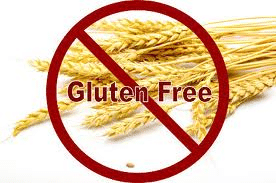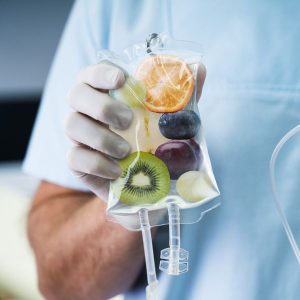The facts about gluten intolerance, testing and treatments
 You hear more and more every day about someone who knows someone that is gluten intolerant. Most of us ask ourselves “What is gluten and why am I hearing so much about it”, “I wonder if I may be gluten intolerant”. The facts are simple and determining if you’re gluten intolerant or not is just as simple.
You hear more and more every day about someone who knows someone that is gluten intolerant. Most of us ask ourselves “What is gluten and why am I hearing so much about it”, “I wonder if I may be gluten intolerant”. The facts are simple and determining if you’re gluten intolerant or not is just as simple.
Gluten is a binding protein that has been acceptably used for years in our foods that are generally processed, rather than raw and in their natural state.
As a result of introducing gluten very quickly and heavily into our diets, via almost any prepared foods, processed foods or foods that have a label with ingredients on it, gluten intolerance has been on the rise and doesn’t show any indication that it is going to decrease in the near future. This can be due to our lack of healthy, whole, and raw foods diet that we were designed to eat. Many of us do not have the enzymes needed to break down gluten therefore we can suffer from symptoms including: bloating and gas, abdominal cramping, lethargy, diarrhea, brain fog, weight gain, and numerous skin conditions to name a few. In addition to suffering from these symptoms, countless people have been misdiagnosed with Celiac Disease, Crohn’s Disease, IBS, and Ulcerative Colitis.
To determine the proper diagnosis, and if gluten intolerance is the issue rather than another condition, your Physician can conduct a simple 96 igG blood test to determine your level of sensitivity to gluten along with 95 other common food sensitivities. Most people who test positive for gluten intolerance also have additional food allergies or sensitivities that should be avoided to help alleviate symptoms, reduce inflammation and promote health.
Once the level of gluten intolerance is known, treatment can begin to help you on the road to feeling more like yourself. Treatment and protocols are quite simple and can include: rotation and elimination diet, which removes all food sensitivities and reactive foods from your diet for a period of no less than 3 months. Detoxification may also be needed in more severe cases to rid the body of counterproductive toxins and provide your with a clean slate to restore your health. Supplementation with medical grade supplements is key to support a healthy balance of vitamins and minerals after altering your diet along with enzymes such as: Polysaccharides, Protease, and Probiotics to help heal the gut and reduce inflammation.
Diagnosing and treating gluten intolerance is now simpler than it ever has been and many people quickly notice the benefits of learning more


















